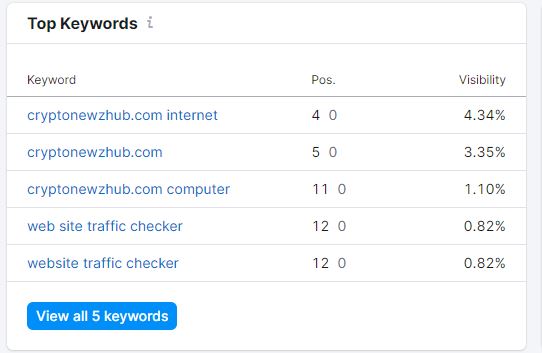Published on 12 April 2024

How to find keywords
Keyword research is the foundation of effective SEO. How to find the right keywords for your content:
- Brainstorm and List Topics: Start by brainstorming relevant topics related to your business or niche. Think about what your audience might be searching for.
- Use tools: Use keyword research tools like Google Keyword Planner, SEMrush, Ahrefs or lOOkkle. These tools provide insights into search volume competition and related keywords.
- Competitor analysis: Analyze your competitors' websites. Identify the keywords they rank for and consider incorporating similar terms into your strategy.
Check your existing rankings
It's crucial to understand where you are right now. Follow these steps:
- Google Search Console: Use Google Search Console to check your existing rankings. Look for ways to improve or optimize existing content.
- Track progress: Monitor your rankings regularly. Tools like SEMrush, Moz or lOOkkle can help you track changes over time.
Search a keyword database
Search keyword databases to expand your list:
- Google Trends: Discover trending keywords and seasonal variations.
- Answer the public: This tool provides questions and phrases related to your topic.
Know your audience
It's important to understand your audience's intentions:
- User Intent: Consider whether users are looking for information products or services. Adjust your keywords accordingly.
- Local vs. Global: Customize keywords based on your audience’s location.
Target long-tail keyword phrases
Long-tail keywords are specific and less competitive. Optimize for them:
- Natural Language: Think about how people naturally phrase their questions.
- Specific queries: Target phrases like “best hiking trails near Seattle” not just “hiking trails.”
Identify areas of opportunity
Look for gaps in your content:
- Content Gap Analysis: Identify topics related to your niche that you haven't covered yet.
- Low Competition Keywords: Find keywords with good search volume but less competition.
Let keywords drive the content process
Create content around your chosen keywords:
- High-quality content: Write informative engaging articles that incorporate your keywords naturally.
- Title tags and meta descriptions: Optimize these for relevant keywords.
Use different keywords to say the same thing
Variety is important. Don't repeat the same keywords excessively:
- Synonyms and Variations: Use synonyms and related terms.
- LSI Keywords: Latent semantic indexing keywords improve context.
Use traffic analytics
Analyze your website traffic:
- Google Analytics: Understand which keywords drive the most traffic.
- Behavior Flow: See how users navigate your website after searching for specific keywords.
- The traffic analysis tool of Lookkle tracks metrics such as total number of visitors, page views, bounce rate, and average time spent on each page.
Tips on SEO and Online Business
Next Articles
Previous Articles
Topics:
Windows Server |
Servers |
PHP |
SEO |
Internet Security |
Ubuntu |
Windows |
Operating Systems |
Javascript |
JQuery |
Business |
How To |
Marketing Digital |
Technology |
VideoGame |
Online Troubleshooting |
General |
Artificial Intelligence















